 What I’d Like to See Happen: Comic Books
What I’d Like to See Happen: Comic Books
By Tony DiGerolamo
Fans that know me, know that I’ve been making comic books for quite a while. After a long history in print, I eventually migrated over to webcomics and prior to all that, I hosted a nationally syndicated TV show (The Comic Book Show) which covered the comic book industry. Now let me preface this rant by saying, I’m not one of those old comic fans that longs for the days of the late 60’s and early 70’s when everyone was rushing to the comic book store to read Spiderman or Batman. I enjoy the medium to a great deal, but that past is as dead as stagecoaches and the telegraph. But like a lot of creators in the medium, it’s frustrating to watch it rarely live up to its potential.
When Superman died in the early 90’s, everyone jumped on the comic book band wagon. That was the print comic book industry’s last hurrah. No one knew it at the time. I was doing my TV show then. The excesses of the industry at that time were not limited to the johnny-come-lately comic book publishers that jumped into it to make a quick buck or even the major publishers, whose excesses were pretty extreme. I met new, indie comic creators during that time that adopted the same attitude towards there fans. One in particular had t-shirts, frisbees, bumper stickers and a whole host of other merchandise at a show and no comic book. It was like trying to sell out before you even made it. At that moment, creators big and small had the opportunity, the money and the fan base to really expand the medium into something beyond it’s niche audience. Instead, it collectively chose to squeeze as much money out of the new fans as it could until it died.
Then webcomics emerged. Webcomics didn’t suddenly make us rich, but it did remove two major stumbling blocks: the overhead with regards to printing (which is expensive) and the exposure to the world (which had been strangled down to basically one distributor). And, whereas, the print comics were dominated by superheroes for decades, webcomics finally made it so easy that literally anyone could post one. Now every topic imaginable is out there and some are extremely successful. But despite all their success, webcomics haven’t totally “hit” yet. You don’t see many news pieces on webcomics and even the comic book journalists are only just now covering them with any kind of regularity. What happens when webcomics emerge on the world stage as a full blown, acceptable medium that something close to a majority of people read?
Here’s what I’d like to see happen: I’d like to see the major publishers continue to hold onto their income by doing the digital downloads and charging money for them. I think the longer they do this, the worse off they’re going to be because of the cyclical nature of comic book universes. Each incarnation of the major characters seem to peak with a new talent. In the ruthless pursuit of sales, publishers tend to pick stories that up the ante far too quickly, forcing the peak and then killing the sales when either the pay off doesn’t live up to expectations or the new creative team moves in. The big publishers are going to have to learn a harsh lesson: It’s all about the talent, not the trademarks.
Webcomics emerge as the dominant digital art form. More corporate, work-for-hire ones emerge as well, but these tend to be short lived. None of them can really hit it big because of the low level nature of the hits, the money and the cyclical nature of the fandom. Some get popular for a while, but the moment they start to fade, most companies axe them. Webcomic fans like corporate webcomics, but not to the extent of the creator-controlled ones. The creator controlled ones go far beyond what any corporate website can offer because the corporation has to pay for every offer, while the creator does it for free because of his emotional investment, whether or not his webcomic is successful.
“Success” also continues to be loosely defined in the webcomic world. Unlike print comics which tended to ruthlessly worship what was popular and hold award ceremonies mostly designed just to beef up sales, webcomic analysis goes deeper because people can actually read all the webcomics for free. You don’t need to rely on a source to tell you what’s good, you can simply go there and find out for yourself. And analysis of said webcomics continues to be truthful for the same reason, forcing webcomic journalists to be far more truthful and on the point than their predecessors in print. The model of offering the webcomic for free continues to dominate and as print really begins to die off, more fans move into the webcomic “circle”. With more fans, more are willing to donate and support their favorite webcomics voluntarily.
And while pay-by-the-issue digital downloads eventually becomes an unworkable model, the format is reserved for specials, one-shots and graphic novels. Webcomic creators offer them as well as extras and for fans that just like the alternate format. Hollywood attempts to co-opt the webcomic world as they did with the print comics, but they quickly find it too unwieldy. There are no big companies to buy, so they are forced to deal with creators one-on-one. And, just as the Internet is beginning to free celebrities who can bring their talent directly to their fans, so too does the Internet free comic creators from the publishers that want to control them.
I don’t know. Sound too far fetched? Well, I’d like to see it happen.
Copyright 2012






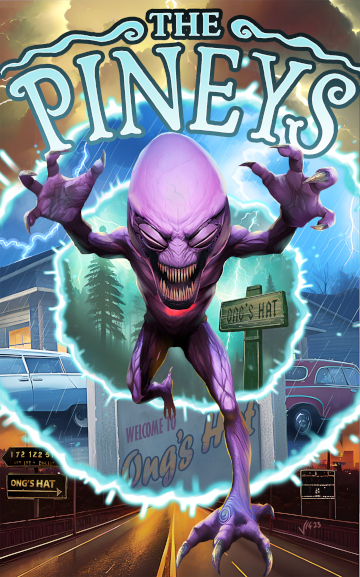



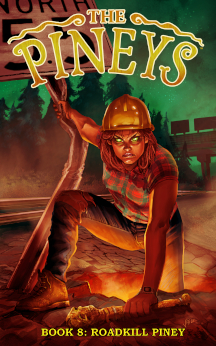
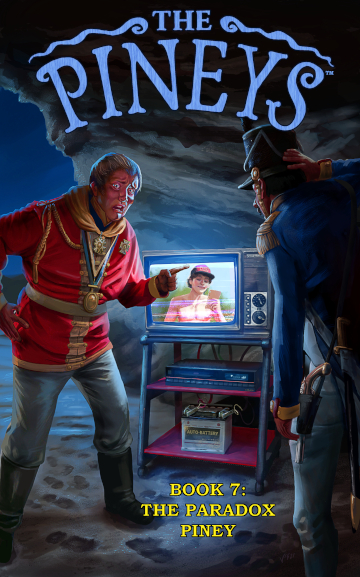

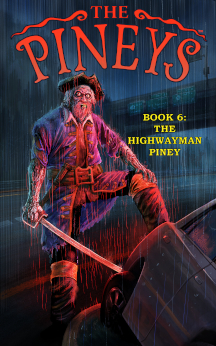
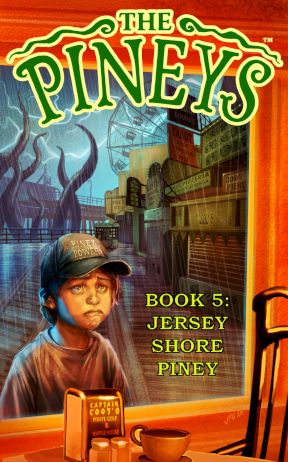


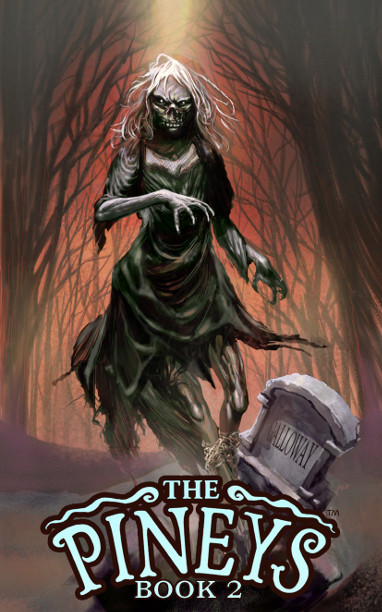



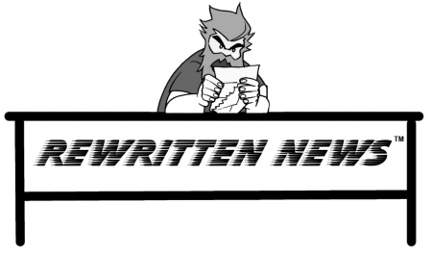
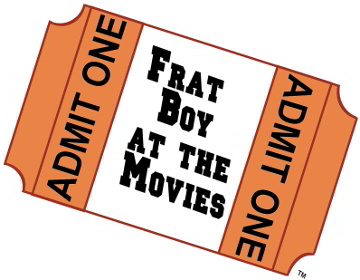







What I’d Like to See Happen: Comic Books
by tonyd on April 9, 2012 at 12:01 amBy Tony DiGerolamo
Fans that know me, know that I’ve been making comic books for quite a while. After a long history in print, I eventually migrated over to webcomics and prior to all that, I hosted a nationally syndicated TV show (The Comic Book Show) which covered the comic book industry. Now let me preface this rant by saying, I’m not one of those old comic fans that longs for the days of the late 60’s and early 70’s when everyone was rushing to the comic book store to read Spiderman or Batman. I enjoy the medium to a great deal, but that past is as dead as stagecoaches and the telegraph. But like a lot of creators in the medium, it’s frustrating to watch it rarely live up to its potential.
When Superman died in the early 90’s, everyone jumped on the comic book band wagon. That was the print comic book industry’s last hurrah. No one knew it at the time. I was doing my TV show then. The excesses of the industry at that time were not limited to the johnny-come-lately comic book publishers that jumped into it to make a quick buck or even the major publishers, whose excesses were pretty extreme. I met new, indie comic creators during that time that adopted the same attitude towards there fans. One in particular had t-shirts, frisbees, bumper stickers and a whole host of other merchandise at a show and no comic book. It was like trying to sell out before you even made it. At that moment, creators big and small had the opportunity, the money and the fan base to really expand the medium into something beyond it’s niche audience. Instead, it collectively chose to squeeze as much money out of the new fans as it could until it died.
Then webcomics emerged. Webcomics didn’t suddenly make us rich, but it did remove two major stumbling blocks: the overhead with regards to printing (which is expensive) and the exposure to the world (which had been strangled down to basically one distributor). And, whereas, the print comics were dominated by superheroes for decades, webcomics finally made it so easy that literally anyone could post one. Now every topic imaginable is out there and some are extremely successful. But despite all their success, webcomics haven’t totally “hit” yet. You don’t see many news pieces on webcomics and even the comic book journalists are only just now covering them with any kind of regularity. What happens when webcomics emerge on the world stage as a full blown, acceptable medium that something close to a majority of people read?
Here’s what I’d like to see happen: I’d like to see the major publishers continue to hold onto their income by doing the digital downloads and charging money for them. I think the longer they do this, the worse off they’re going to be because of the cyclical nature of comic book universes. Each incarnation of the major characters seem to peak with a new talent. In the ruthless pursuit of sales, publishers tend to pick stories that up the ante far too quickly, forcing the peak and then killing the sales when either the pay off doesn’t live up to expectations or the new creative team moves in. The big publishers are going to have to learn a harsh lesson: It’s all about the talent, not the trademarks.
Webcomics emerge as the dominant digital art form. More corporate, work-for-hire ones emerge as well, but these tend to be short lived. None of them can really hit it big because of the low level nature of the hits, the money and the cyclical nature of the fandom. Some get popular for a while, but the moment they start to fade, most companies axe them. Webcomic fans like corporate webcomics, but not to the extent of the creator-controlled ones. The creator controlled ones go far beyond what any corporate website can offer because the corporation has to pay for every offer, while the creator does it for free because of his emotional investment, whether or not his webcomic is successful.
“Success” also continues to be loosely defined in the webcomic world. Unlike print comics which tended to ruthlessly worship what was popular and hold award ceremonies mostly designed just to beef up sales, webcomic analysis goes deeper because people can actually read all the webcomics for free. You don’t need to rely on a source to tell you what’s good, you can simply go there and find out for yourself. And analysis of said webcomics continues to be truthful for the same reason, forcing webcomic journalists to be far more truthful and on the point than their predecessors in print. The model of offering the webcomic for free continues to dominate and as print really begins to die off, more fans move into the webcomic “circle”. With more fans, more are willing to donate and support their favorite webcomics voluntarily.
And while pay-by-the-issue digital downloads eventually becomes an unworkable model, the format is reserved for specials, one-shots and graphic novels. Webcomic creators offer them as well as extras and for fans that just like the alternate format. Hollywood attempts to co-opt the webcomic world as they did with the print comics, but they quickly find it too unwieldy. There are no big companies to buy, so they are forced to deal with creators one-on-one. And, just as the Internet is beginning to free celebrities who can bring their talent directly to their fans, so too does the Internet free comic creators from the publishers that want to control them.
I don’t know. Sound too far fetched? Well, I’d like to see it happen.
Copyright 2012